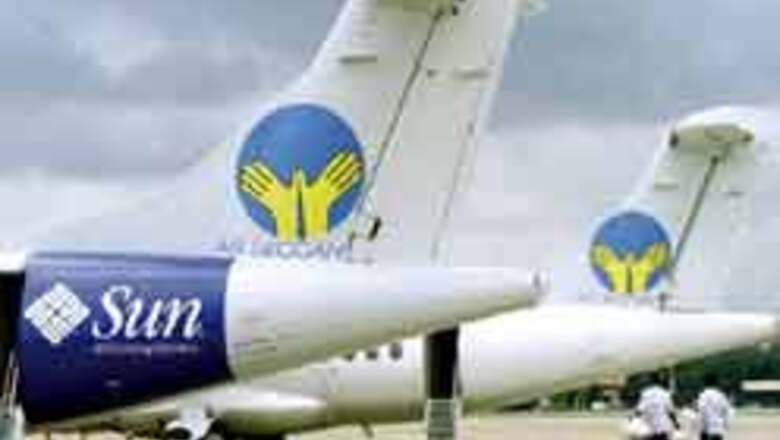
views
Mumbai: An initial public offering by discount carrier Deccan Aviation has struggled to find takers, raising questions on the viability of the low-cost airline model in an increasingly crowded market.
The offering, which closes on Tuesday, comprises a fresh issue of 24.55 million shares, or a quarter of the post-issue capital. It will raise as much as 4.3 billion rupees if priced at the top of Rs 150-175 per share range.
The issue was scaled back from a planned $250-$300 million and delayed due to reported disagreements over the valuation. In contrast, a $600 million IPO by Reliance Petroleum Ltd drew huge demand last month.
Leader Jet Airways raised $434 million in 2005, and the issue was oversubscribed despite a relatively high price band of Rs 950-1,125. The Deccan issue was hit further by record declines on the stock market, but analysts were also wary of its business model.
"The stock seems expensive given the inherent nature of low profitability and high capital intensity for the industry, especially during the current phase of rapid expansion," said Kalpesh Parekh, an analyst at ASK-RJ Securities.
Deccan, which launched its first flight in August 2003 with an ATR turboprop aircraft, has 30 planes flying to 55 destinations and just above 14 per cent of the domestic market.
It posted a net loss of 195 million rupees in the year to March 2005 on revenue of 3.2 billion rupees. Analysts estimate the company will turn a profit in 2007/08.
Growing competition:
The domestic aviation market - which saw nearly 25 million passengers in the year to March 2006 - is forecast to grow at about 20 per cent a year over the next five years, but is seeing increasing competition and infrastructure bottlenecks.
There are two other low-cost players in operation and others waiting to launch. Full-service carriers, including newcomer Kingfisher Airlines, are also engaged in a feisty fare war to gain share.
Budget carriers offer limited seats for as little as $5 as they look to woo millions of long-distance train passengers. "This is not a game of low fares, but low costs," said Parekh, who advised clients against subscribing to the issue.
"There's pressure on costs and yields... nearly 65 per cent of costs are fixed and common for full-service and low-cost carriers, so low-cost carriers are walking a tightrope," he said.
Deccan has saved costs by outsourcing non-core operations like ticketing and earned incremental revenue from selling food and beverages and advertising space, but rising fuel and staff costs and a lack of secondary airports are a serious hurdle.
Moreover, foreign carriers are not permitted to own a stake. Deccan had earlier held talks with Virgin Blue. But not everyone was pessimistic.
The market in the long-term looks attractive, said Kapil Kaul, head of the Centre for Asia-Pacific Aviation in India.
"The next two years will be hard, but infrastructure will improve, policies will become more amenable, yields will improve, and there will be a premium on low-cost carriers," he said. "It's just unfortunate that the timing is bad now," he said.

















Comments
0 comment